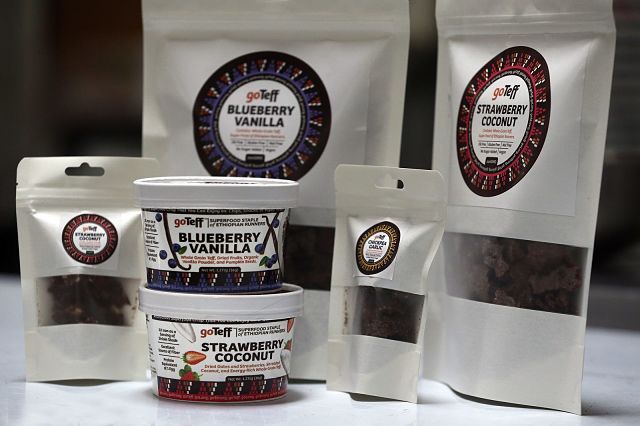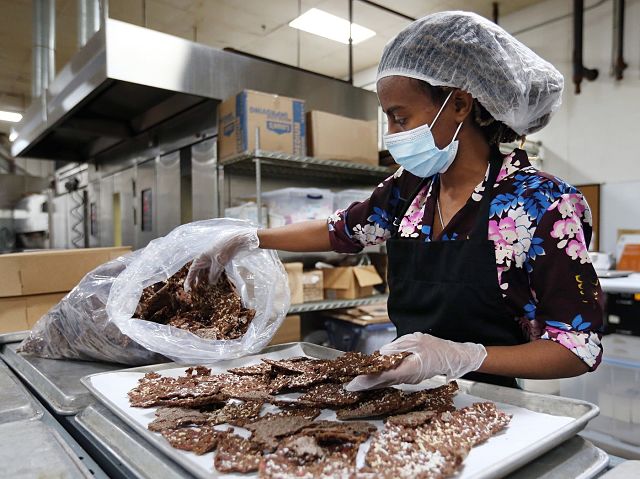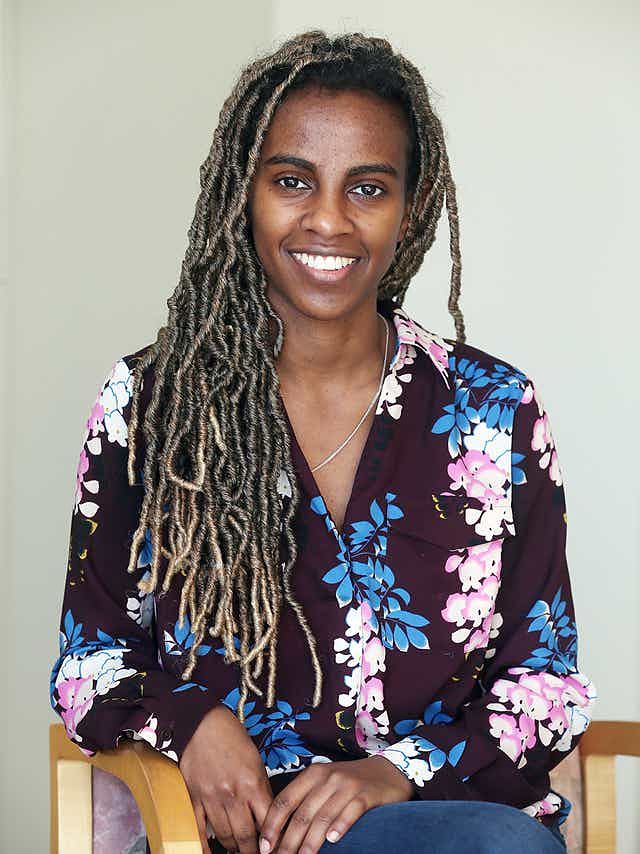The Providence Journal
Saron Simon Mechale is an accidental entrepreneur.
The 26-year old from Addis Ababa, Ethiopia, is founder and CEO of goTeff, a deliciously nutritious crisp made from an ancient supergrain called teff. Mechale doesn’t have a background in business. She’s never studied culinary arts. But her unwavering conviction to reshape the West’s perceptions of her home country was incentive enough to launch her own startup.
“When it comes to Ethiopia or Africa, we are not the ones telling our story,” she said.
That reality became crystal clear to Mechale when she first came to the United States in 2013 to study at Brown University. Her knowledge of the U.S. was largely drawn from the movies and television shows she had grown up watching.
America is known as the best country in the world,” she said. “Its brand is very powerful.”
But just as the Hollywood version didn’t tell the whole story (she was shocked to learn that homelessness and poverty exist in this country), she also became acutely aware of the stereotypical way that Western media portray Ethiopia, and Africa at large.
“It was very one-sided storytelling,” she said. “I felt I wanted to tell an authentic, contemporary story for Ethiopia.”
Ironically, Mechale’s more modern messaging about her homeland centers on a supergrain that’s been cultivated in Ethiopia for thousands of years. Teff is an integral part of the Ethiopian diet. Rich in protein, fiber, iron and calcium, it has long fueled the country’s famous long-distance runners. From Mechale’s perspective, each tiny grain of teff packs the power and promise of a new Ethiopia.
“When I started this, it was almost like a social-justice project in my head,” she said. “I know that Ethiopia is sometimes known for two things: famine and malnourished kids, or freakishly good endurance athletes. The Ethiopian athlete angle is super powerful. That was strongly connected to teff.”
What was equally imperative to Mechale was making sure her country would benefit financially from teff, beyond just exporting the grain. While 95% of the world’s teff is grown in Ethiopia, it was a Dutch company that for years held a patent on products made with teff flour.
“I looked at it as secondhand colonization,” she said of the practice of Africa exporting raw materials cheaply to richer nations that transform them into consumer products with higher profit margins.
“Cocoa comes from Ghana or West African countries, but chocolate is associated with Switzerland. Why can’t West Africans produce chocolate and be part of the market in a stronger way that returns more value to farmers and to the economy of the country?”
From vision to startup
With her vision for a rebranded Ethiopia, Mechale started taking more entrepreneurship courses at Brown, learning important lessons about starting a business. Slowly, goTeff began taking shape. In 2019, she competed in Brown’s Venture Prize, hosted by the Jonathan M. Nelson Center for Entrepreneurship; goTeff came in second place.
“I was privileged to start this idea at a place like Brown,” Mechale said. “The university created a great ecosystem for me when I first started this company.”
goTeff’s trajectory continued to rise. The startup also won the 2019 MassChallenge Rhode Island and became a two-time finalist for the Rhode Island Business Plan competition. At every turn, Mechale was making significant connections to networks of entrepreneurs who would become valuable mentors.
“Rhode Island does an amazing job of supporting small businesses and getting young people to stay here and start new things,” she said.
Mechale had her vision. She also had her star ingredient. But she still needed to come up with a recipe that would prove irresistible to customers. One of her first stops was Hope & Main, an incubator for food businesses, located in Warren. It would take years of trial and error for Mechale to develop the crunchy snack food she sells today.
“She’s the quintessential entrepreneur,” said Lisa Raiola, president and founder of Hope & Main. “She iterates. She learns. For her to have transformed this ancient grain in a way that’s very accessible to us, and build this brand, is pretty remarkable. She’s a powerhouse.”

Saron’s goTeff snak products come in a variety of flavors. (The Providence Journal)
Joe Loberti is equally impressed. A longtime businessman and entrepreneur himself, Loberti has mentored Mechale since 2019 through the RIHub Venture Mentoring Service. The nonprofit relies on industry veterans who volunteer to mentor entrepreneurs who want to launch startups in the Ocean State.
“She really is a remarkable individual,” he said about Mechale. “At the first meeting, we were wowed by her communication skills and knowledge of the product.”
With the help of the mentoring sessions, Mechale expanded her target customer beyond the purely athletic to the health-conscious. She made sure that her goTeff snacks — which can also be used as a cereal, granola or topping for yogurt or salad — were not only gluten-, dairy- and nut-free, but they only contained a handful of healthy ingredients.
She perfected her logo and packaging to “communicate the joy and essence of Ethiopian culture.” The company’s tagline: go long, go strong, goTeff!
Empowering girls in Ethiopia
And staying true to her focus on social impact, she is partnering with Girls Gotta Run, an organization in Ethiopia that uses sports to empower girls and keep them in school.
For now, Mechale has moved production to an industrial kitchen in Providence. She’s streamlined the production process and is focusing more on sales.
“Before COVID, we’d let customers [at farmers markets and events] sample it,” she said. “We know that once people try our product, they buy it. But because most people don’t know what teff is, they’re more cautious.”

Saron Simon Mechale breaks up sheets of baked teff products into snack-size portions. Now working in an industrial kitchen in Providence, she dreams of one day moving production to her native Ethiopia to boost its economy. (The Providence Journal)
Mechale has been selling her teff crisps at farmers markets, at Plant City (a vegan restaurant in Providence) and on the goTeff website. She just joined WhatsGood, an online “market” that connects local growers and food businesses to customers. And, she’s hoping to get a big boost from renowned “superfoods hunter” Darin Olien. The wellness author recently recorded an interview with Mechale about goTeff for an upcoming episode of his podcast, “The Darin Olien Show.”
For the foreseeable future, Mechale plans to keep working 80-hour weeks to grow goTeff in the American marketplace. Her dream is to one day move production to Ethiopia and help lift the local economy.
“In a lot of ways, I’ve looked up to Saron,” said Mary Magdalene Langat, a close friend from Brown who helps Mechale with goTeff. “She’s very brave, and she goes for what she wants. When someone believes in themselves and their vision so much, they take you in with them.”

Brown University graduate Saron Simon Mechale says she sees goTeff as a way to help rebrand and lift the economy of her native Ethiopia, while empowering women. (The Providence Journal)
Not everyone is born knowing what they’re passionate about or what they want to do,” Mechale said. “I think passion comes after you invest a significant amount of time in something. For me, I am passionate about rebranding Ethiopia. I’m passionate about empowering women. And, I’m passionate about making teff and healthy food options accessible to people.”
Go long, go strong, go Saron Mechale!
—